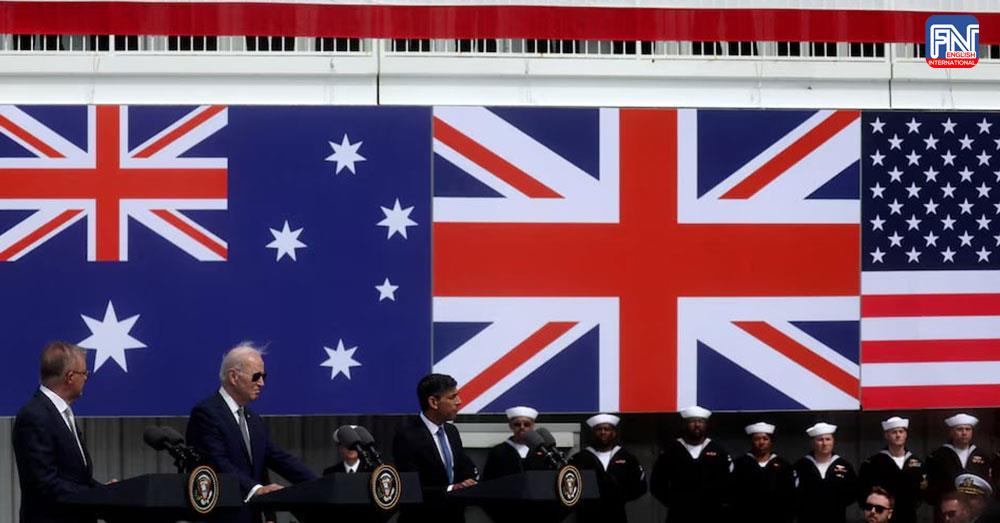WASHINGTON, April 19 (Reuters) - The U.S. State Department said on Friday it fully expects to finalize new trade exemptions for the AUKUS defense project with Australia and Britain in the next 120 days, signaling a further delay in the move, but offering the prospect of a positive outcome in the project to counter China.
AUKUS was formed in 2021 to address shared worries about China's growing power and would involve Australia acquiring nuclear-powered attack submarines, among other items of defense cooperation. But the sharing of closely guarded technology is governed by strict U.S. International Trafficking in Arms Regulations (ITAR).
The 2024 National Defense Authorization Act (NDAA) requires President Joe Biden to determine within 120 days of his signing it into law on Dec. 22 whether Australia and Britain have export control regimes "comparable to the United States" and thereby qualify for exemptions to the ITAR regulations. The 120 days is reached on Saturday.
"Exemptions in our export control systems, within a framework of shared standards with Australia and the UK, are key to harnessing and maximizing the innovative power residing in our defense industrial bases," the State Department said.
"We fully expect to finalize the new trade exemptions – based on stakeholder input – over the course of the next 120 days," it said.
Although the State Department statement indicated a delay in a positive determination by Biden, the legislation requires him to revisit the issue in another 120 days.
A statement from the British government said it "warmly welcomes the significant progress" to advance AUKUS.
"UK and Australia are on track to meet the requirements of the NDAA and benefit from the exemptions," it said. "We are confident that by the next 120-day period we will have completed all the requirements for full implementation of the ITAR exemptions."
Australia's Department of Defence said in a statement that it welcomed the "tangible steps" by the US to streamline export control licensing requirements for AUKUS.
"The decision by the United States Department of Commerce to establish a licence free dual use export environment amongst and between AUKUS partners is another significant step towards establishing a seamless environment for innovation, cooperation and collaboration," it said.
Senior U.S. Republican lawmakers this week expressed concern about delays in AUKUS if Biden did not grant the exemptions.
In remarks shared with Reuters, Michael McCaul, Republican chair of the House Foreign Affairs Committee, said the exemptions were needed to allow businesses to develop advanced capabilities quickly without "burdensome bureaucracy and regulations."
Jeff Bialos, a former senior Defense Department official now a partner with the Eversheds Sutherland law firm, said the State Department has resisted blanket exemptions for Britain and Australia ever since they were first proposed by the Pentagon nearly 25 years ago while he was in office.
He called the State Department statement "forward leaning" and said he now expected the three countries to put forward draft exemptions covering each other's export control rules.
"One of the criteria is that the other countries also have a system that will allow exports to the U.S. to be exempt. It's reciprocal," he said.
On Thursday, the U.S. Commerce Department said it was scaling back its export-control requirements for Australia and Britain to foster cooperation under AUKUS.
However, Commerce only handles licensing of some defense-related items, not the broader range of items covered by the ITAR regime, which is governed by the State Department's Bureau of Political-Military Affairs.
AUKUS' first pillar deals with the supply of nuclear-powered submarines to Australia, while Pillar II calls for more immediate cooperation in high-tech defense items such as quantum computing, undersea capabilities, hypersonics, artificial intelligence and cyber technology.
In announcing its move, the Commerce Department said both Australia and Britain "have robust export control systems and have taken additional steps in recent months to enhance technology protection."

Photo from Reuters




